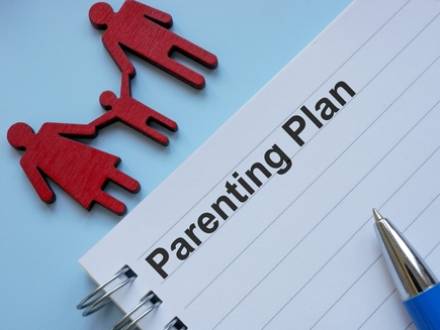Creating a Parenting Plan That is Appropriate to a Child’s Age
 In the state of Illinois, custody and visitation are now known as the allocation of parental responsibilities and parenting time. Regardless of the language, the need for a comprehensive parenting plan remains the same. A parenting plan provides guidelines for each parent’s time with the child after the divorce.
In the state of Illinois, custody and visitation are now known as the allocation of parental responsibilities and parenting time. Regardless of the language, the need for a comprehensive parenting plan remains the same. A parenting plan provides guidelines for each parent’s time with the child after the divorce.
Unfortunately, many parents—and even courts—take a "one size fits all" approach to a parenting plan without considering the child’s age and changing needs. The psychological and emotional developmental stages vastly differ between a two-year-old and a teenager, not to mention the significant differences in time available to spend with each parent.
While babies and toddlers may require frequent parental daytime visits and a consistent schedule, older children require more flexibility in the parenting plan to adapt to school demands and extracurricular activities. If you are going through a divorce and could use some experienced legal assistance with your parenting plan, a Cook County, IL family law attorney can help.
How Should Your Parenting Plan Differ According to Your Child’s Age?
A parenting plan should make sense for the present while allowing changes and flexibility for the future. The following are ways to make your parenting plan more fully fit your child’s age now and later.
Babies and Young Toddlers
A parenting plan should aim to lessen the stress and grief of family changes following a divorce. Children under the age of one year need short, frequent visits that ideally occur in the same location each time. This would mean that the baby or young toddler primarily lives with one parent, and the other comes to that parent’s home to visit the child.
Babies often live with one parent (the mother, if she is breastfeeding) while the other parent visits during the daytime, so feeding and sleep schedules are not unduly disrupted. Most young children are not able to easily adapt to overnight stays with the other parent until around the age of three. As the baby gets older, an occasional overnight visit can be introduced.
Some parents choose a 5-2 schedule, where the baby spends five days with one parent and two days with the other if the mother is not breastfeeding. Both parents have frequent daytime visits with the child when he or she is with the other parent.
Older Toddlers Through Pre-Teens
Children this age are usually developmentally able to spend nights and weekends away from the primary custodial parent. They are much more sensitive to conflict and tension between parents and build strong bonds with loved ones, so the parenting plan should be patterned to avoid as much separation anxiety as possible.
Children between the ages of six and 12 are just beginning to have friendships and extracurricular activities. This requires more flexibility from a parenting plan while still ensuring frequent, predictable parenting time with each parent.
This age is more independent, adaptable, and involved in the world around them. Longer separations from either parent and inconsistent schedules are more easily tolerated. An alternating week or 2-2-3 schedule can work for children of this age.
Teenagers
While the parental link with both parents remains important, a teen is old enough to provide some input into the time spent with each parent. Social relationships with friends are much more important to teenagers, and their schedules are likely much fuller and more likely to conflict with parenting time. Depending on the situation, teens can generally handle alternating weeks, weekdays with one parent and weekends with the other, alternating two weeks, or a schedule that involves two weeks with one parent and one with the other.
Contact a DuPage County, IL Parenting Time Lawyer
If you are trying to formulate a parenting plan, gaining insight and input from an experienced Lisle, IL parenting time attorney from SpyratosDavis LLCcan be extremely helpful. Our firm focuses on creating a smart strategy that works well for everyone involved. Call 630-810-8881 to schedule your initial meeting with an attorney to discuss your parenting plan or other parenting issues.










